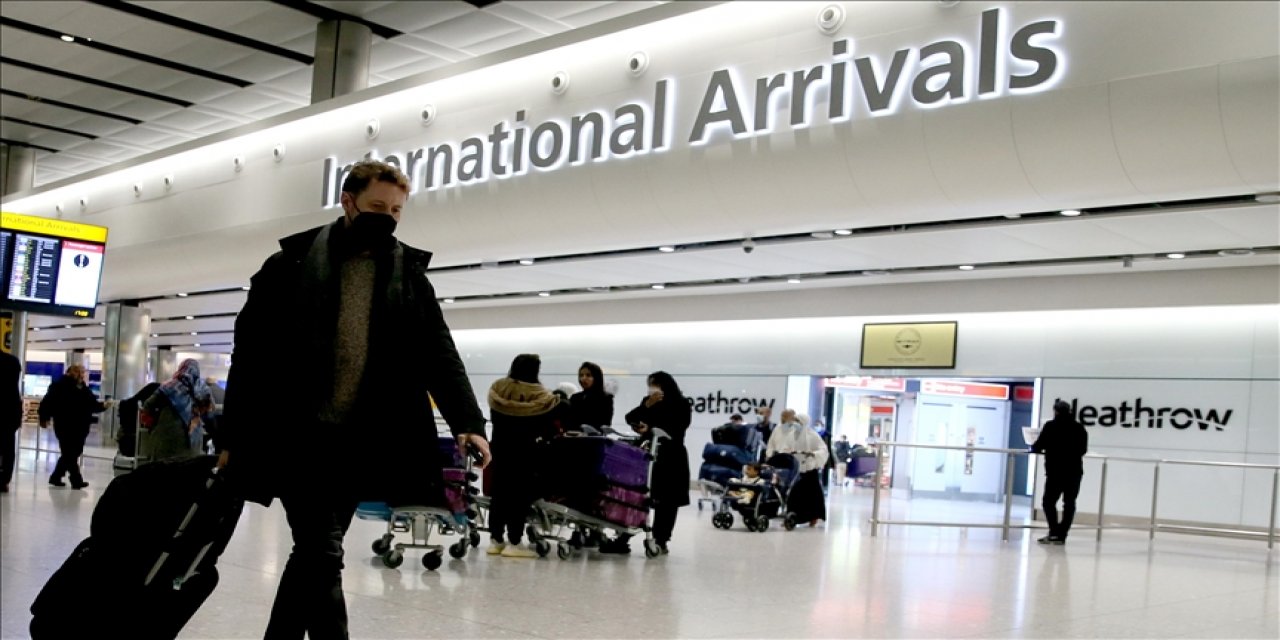WHO rejects blanket travel bans as way to prevent spread of omicron variant
Essential international travel should continue to be prioritized at all times during COVID pandemic, says organization

The World Health Organization (WHO) said Tuesday that temporary travel bans will not prevent the spread of the omicron variant of COVID-19 and instead all countries should include any travel-related measures as part of their strategy to fight the deadly virus.
The organization on its website first thanked South Africa and Botswana “for their capacities in surveillance and sequencing and for the speed and transparency” as it helped other countries adjust to the situation, take related measures immediately and give an effective response in the face of such a threat.
It also urged all other countries to act in the same way.
“It is expected that the omicron variant will be detected in an increasing number of countries as national authorities step up their surveillance and sequencing activities,” it said.
“The WHO is closely monitoring the spread of the omicron variant, and studies are ongoing to understand more about these mutations and their impact on transmissibility, virulence, diagnostics, therapeutics and vaccines,” the statement added.
The WHO also gave advice to all countries on how to respond to the omicron strain.
“Countries should continue to apply an evidence-informed and risk-based approach when implementing travel measures in accordance with the International Health Regulations (IHR),” it said.
“National authorities in countries of departure, transit and arrival may apply a multi-layered risk mitigation approach to potentially delay and/or reduce the exportation or importation of the new variant.
“Such measures may include screening of passengers prior to travelling and/or upon arrival, including via the use of SARS-CoV-2 testing or the application of quarantine to international travelers,” it noted.
“All measures should be commensurate with the risk, time-limited and applied with respect to travelers’ dignity, human rights and fundamental freedoms, as outlined in the IHR (2005).”
“Blanket travel bans will not prevent the international spread, and they place a heavy burden on lives and livelihoods. In addition, they can adversely impact global health efforts during a pandemic by disincentivizing countries to report and share epidemiological and sequencing data.
“All countries should ensure that the measures are regularly reviewed and updated when new evidence becomes available on the epidemiological and clinical characteristics of omicron or any other Variant of Concern (VOC),” the statement said.
The organization also advised that “any travel-related risk mitigation measures should be part of an overall national response strategy.”
“Essential international travel – including travel for emergency and humanitarian missions, travel of essential personnel, repatriations and cargo transport of essential supplies – should continue to be prioritized at all times during the COVID-19 pandemic,” the WHO stressed.
“In addition, all travelers should be reminded to remain vigilant for signs and symptoms of COVID-19, to get vaccinated when it is their turn and to adhere to public health and social measures at all times and regardless of vaccination status, including by using masks appropriately, respecting physical distancing, following good respiratory etiquette and avoiding crowded and poorly ventilated spaces.
“Persons who are unwell or at risk of developing severe COVID-19 disease and dying, including people 60 years of age or older or those with comorbidities (e.g. heart disease, cancer and diabetes), should be advised to postpone travel.”
On Nov. 25, South African scientists announced that they had discovered the omicron variant, which has several mutations that may carry the risk of reinfection. Cases of the same variant have since been found in a number of Western countries.
On Friday, the WHO declared the strain a "variant of concern," naming it omicron.
Since December 2019, the pandemic has claimed over 5.21 million lives in at least 192 countries and regions, with more than 262.7 million cases reported worldwide, according to US-based Johns Hopkins University.







Türkçe karakter kullanılmayan ve büyük harflerle yazılmış yorumlar onaylanmamaktadır.